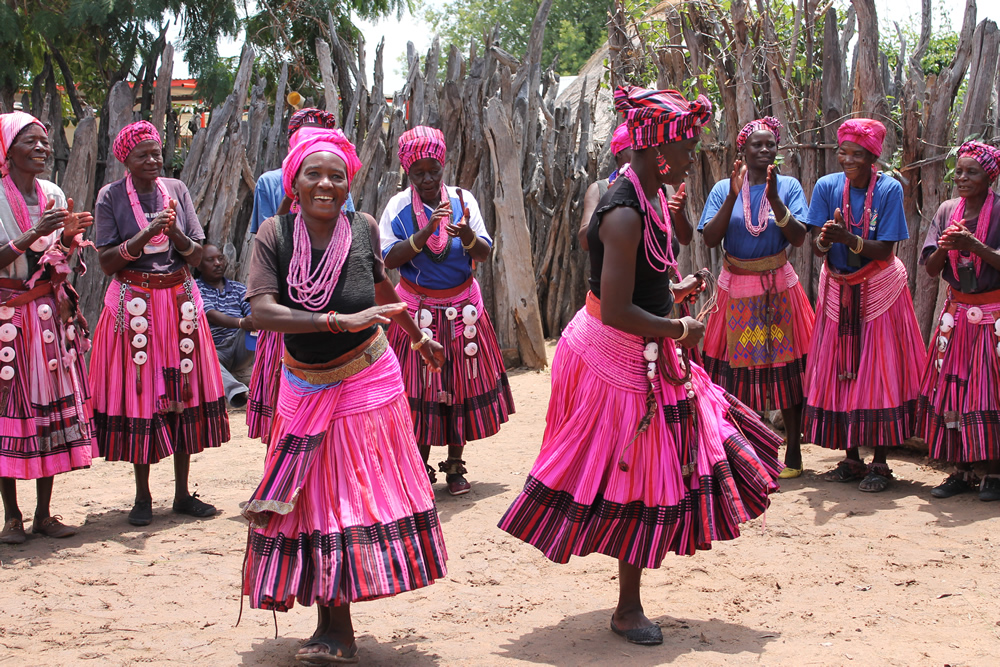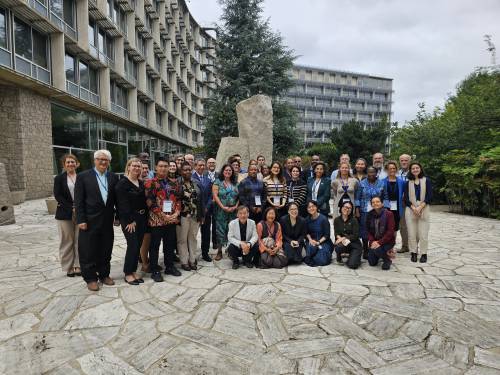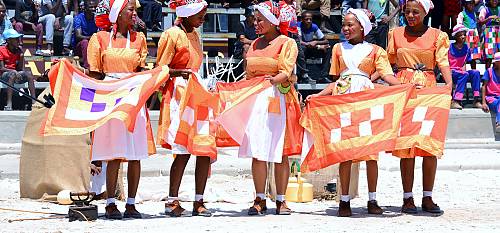On 28 February 2023, Zimbabwe and Namibia launched the project ‘Safeguarding Intangible Cultural Heritage in Basic Education in Namibia and Zimbabwe’ to promote an innovative and transformative methodology of learning with living heritage through a whole-school community-based approach – involving learners, teachers, staff and the wider community. The project will contribute to the Sustainable Development Goal 4, particularly its target 4.7, by improving educational relevance and quality, while supporting the transmission of living heritage to younger generations.
To achieve this, the initiative will train teachers in 24 pilot schools in Namibia and Zimbabwe, as well as other relevant stakeholders such as local school administrators and government representatives. The project aims to mobilize human and institutional capacities to inform policy dialogue between decision makers and local actors to inspire the revision of education policies in both countries.
Participants from both countries took part in the launch event organised in a hybrid format, both in person and online, marking the official start of the two-year project. Namibia and Zimbabwe have been selected as the pilot countries for this initiative in Southern Africa, thanks to their progress in cultural heritage-based education.
Aligned with the funding priority Safeguarding intangible cultural heritage in formal and non-formal education, the project ‘Safeguarding Intangible Cultural Heritage in Basic Education in Namibia and Zimbabwe’ is supported by the Government of Flanders, Belgium and implemented by the UNESCO Regional Office for Southern Africa (ROSA) in partnership with the Culture Fund of Zimbabwe Trust.
Proyecto:
-
Safeguarding Intangible Cultural Heritage in basic education in Namibia and Zimbabwe (1 de junio de 2022 – 1 de junio de 2024)




